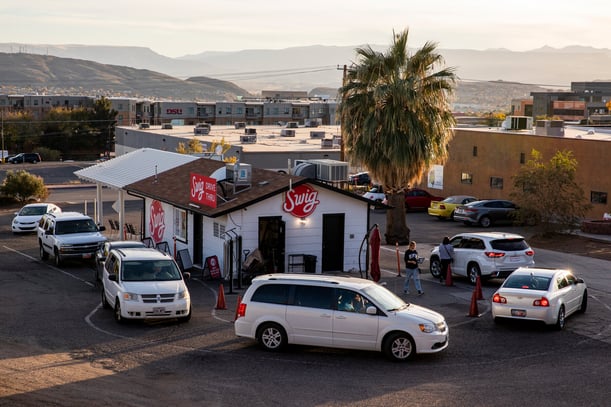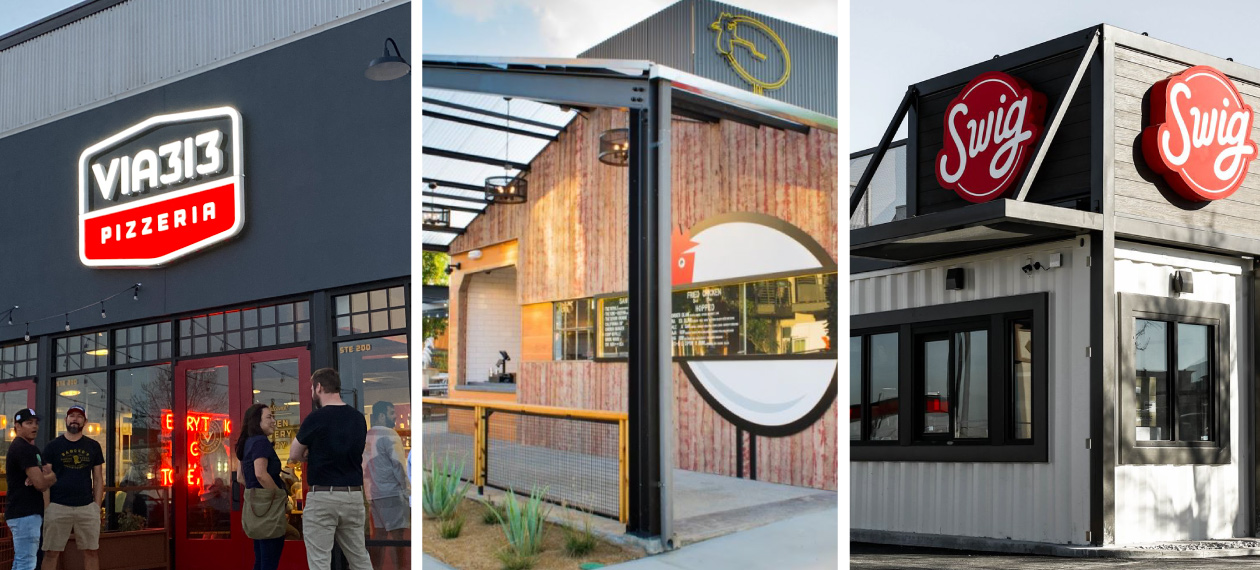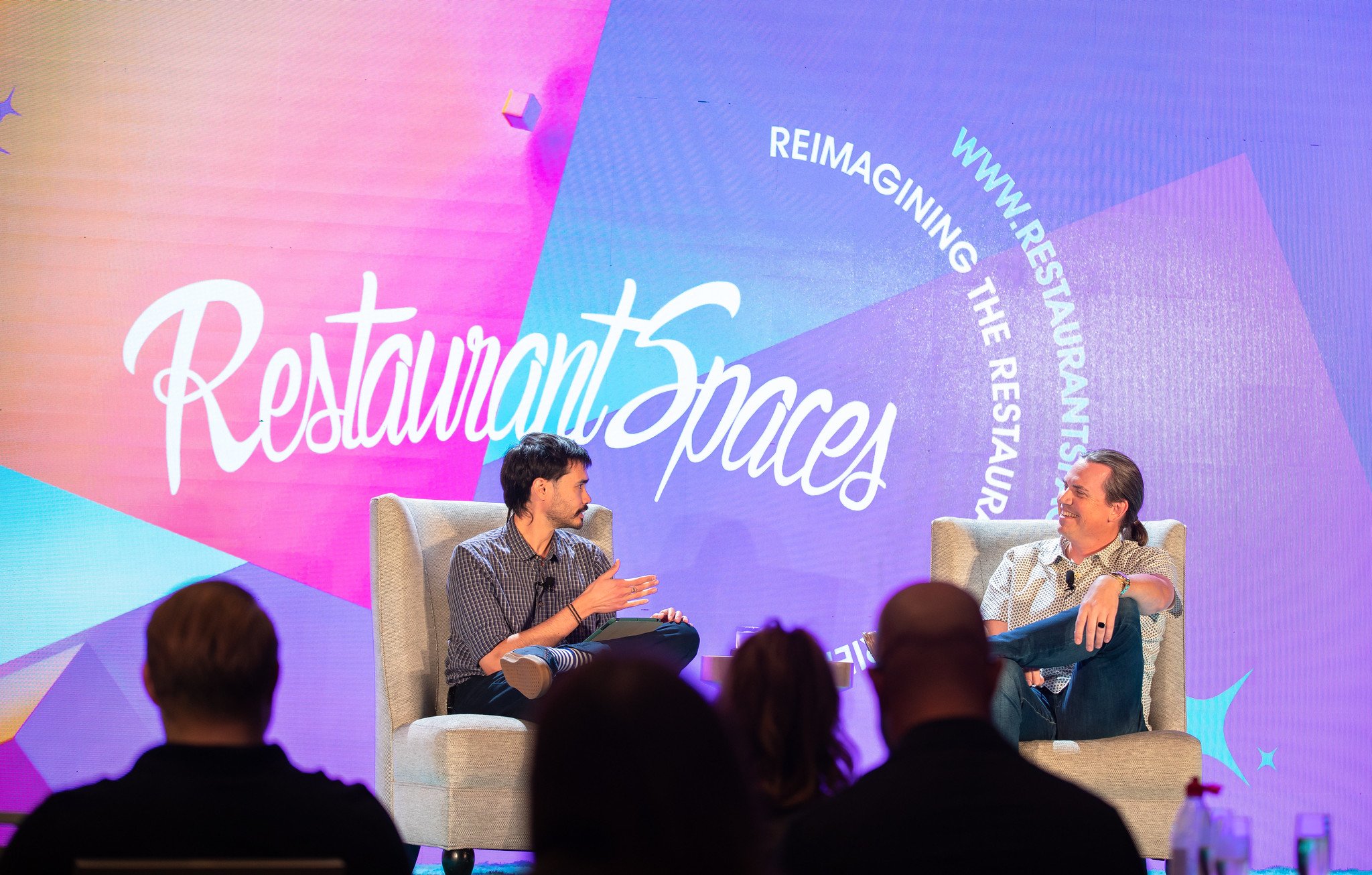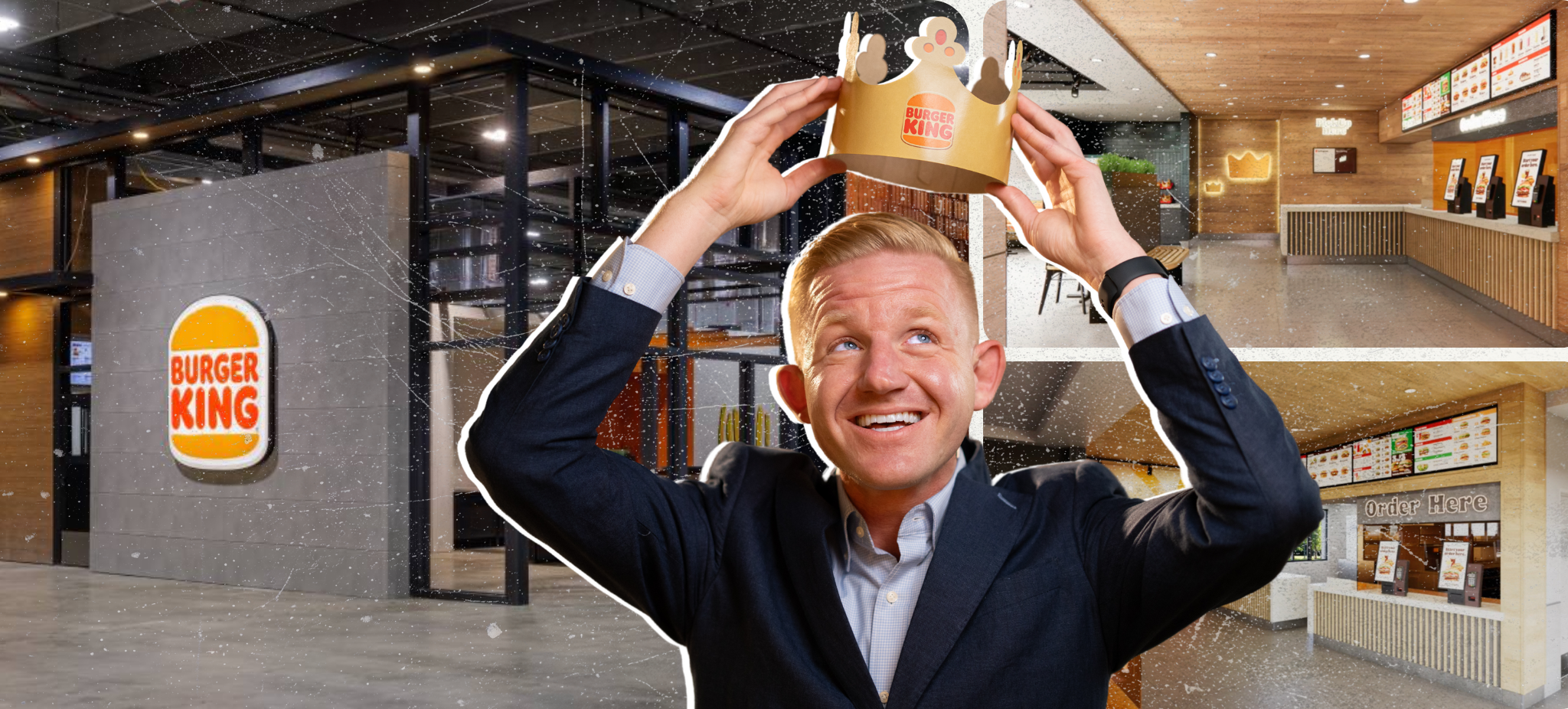When he co-founded Savory Fund in 2020, Andrew K. Smith wanted to change the way private equity invests in restaurants. He had been dissatisfied with his own experiences as a young operator, when he needed more guidance than institutional investors were set up to give.
But it wasn’t just his own experience; Smith saw a pattern across the industry. While a restaurateur may have successfully gotten a handful of units up-and-running in their own state, that doesn’t mean they have the skills to scale into a national operation. They need a helping hand.
Savory Fund’s mission is to identify emerging brands that are well-positioned to succeed, and to give them the resources – both financial and intellectual – to become high-performing enterprises. In a wide-ranging conversation at RestaurantSpaces Fall in Santa Barbara, California, Smith discussed what Savory Fund looks for in new concepts, whether legacy chains can be as “cool” as hip young brands, and why he’s excited for the restaurant industry’s future.
Finding, And Keeping, That “It” Factor
Smith likes to describe Savory Fund’s focus as the “new cool kids on the block”: unique, category-redefining restaurants that seize your attention from the moment you walk in. It’s about incredible food, yes, but also an undeniable “It” factor. Think Swig, the drive-through beverage chain that turned shipping containers into soda stands; think Hash Kitchen, the brunch concept with a build-your-own Bloody Mary bar – all brands within Savory’s portfolio.
What usually seals the deal is a personal connection with a company’s heart and soul: its founders. "If we can sit down, and the founders and I can say, ‘Let's go get a drink after,’ it's usually the start of something pretty special,” Smith said.

Photo Credit: Joe Buglewicz for The New York Times
The nine brands currently under Savory Fund’s guidance were selected from more than 1,100 reviewed by the firm. A company is typically eight to 12 years old by the time it comes across Smith’s desk: it’s already proven that its particular “It” factor is resilient enough to last. A Savory Fund investment is an investment in growing and scaling the brand without losing what makes it stand out.
“That’s really, really hard with an emerging brand,” Smith said. "When we get it prepped and ready for scale, when we're adding additional units, we keep the founder extremely involved. Because they essentially created something cool – we don't wanna screw it up.”
Leaving Founders in Control
Unlike a traditional private equity investment, which Smith likened to jamming $30-$40 million down a company’s throat and saying “good luck,” Savory prefers to leverage its deep operational expertise.
Generally speaking, the fund sets up a financial board of directors and a brand board of directors for its portfolio companies, with the founders holding a majority vote on the latter. That means they retain control of the brand’s, well, branding, from its overall identity to individual menu items.
“We let them control that, because that's why we bought in," Smith said. "As long as you respect them and give them that power, it really has been very, very good for us.”
Savory Fund also gives founders access to its 80-strong team of experts in every aspect of growing and building a restaurant brand. The guidance they provide – for instance, about which tech approach might be best suited to a given concept – varies according to each brand’s needs, though Smith stressed that he usually waits a while before taking any major steps.
"I don't think going in and ripping out the carpet out from underneath the brand initially is a smart thing to do," he said. "So we typically wait six to 12 months before we do anything severe.”
Growth vs. Scale
In his work with emerging restaurant brands, Smith often finds himself cautioning founders against pursuing scale before growth. To ensure his portfolio companies don’t scale too quickly, he advises them to ensure their existing units have solid fundamentals and are growing consistently.
"I believe that there are more profits and there's more of an established brand factor if you focus on the growth of your unit," he said. "If less people are coming in our doors or through our drive-thrus, I think that we need to pause, perfect our brands, and wait for those customers to come back. I think all of us rushing to add in as many units as we can, we're only hurting ourselves.”
He pointed to Swig, the beverage drive-thru, as a company that likely could have scaled quickly when Savory first invested. Instead, they decided to spend time developing its foundation, focusing on technology and refreshing the brand.
"When we did that, we saw this sharp increase in sales and profitability to almost double-and-a-half the profitability of the core units without adding one unit," he said. The lesson: if your goal is to increase cash flow, you can often achieve it – and then some – by focusing on the units you already have.
“The Future Is Full of New Innovation”
The “cool” factor that defines Savory Fund’s portfolio companies isn’t the exclusive province of emerging concepts. Smith believes more established companies can attain it as well; they just have to take an agile approach to freshening up their existing units.
"Be willing to try to pivot and make some cool new innovations inside the boxes you have today versus just duplicating what you have," he advised. “‘Cause the guests are watching.”
He also stressed the need to be keenly aware of who those guests are and how they behave.
“Not every guest is gonna use a phone to order, not every guest is gonna just walk in and want to talk to a cashier," he said. “The guest for one of our brands – whether it be a QSR brand, fast-casual, or even casual sit-down – they're not the same guest. They could be the same person going to each of those restaurants, but it's not the same guest journey. We have to meet the guests where they are.”
As he looks toward the future, Smith is optimistic about the state of the industry – and not just because he’s excited for chicken prices to come down, he joked.
“There's a lot of room for emerging brands; the landscape's different than it's ever been, even in the last 15 years,” he concluded. “I think the future is full of new innovation in this industry that really, really excites me. And we're gonna invest a lot of money behind it.”

Posted by
Chain Restaurants Reimagined.
The Retreat to Reimagine Restaurant Development, Design + Technology.
April 12-14, 2026 | Miami, FL





-Feb-12-2026-04-59-31-5890-PM.png)

-3.png)

-3.png)

Comments